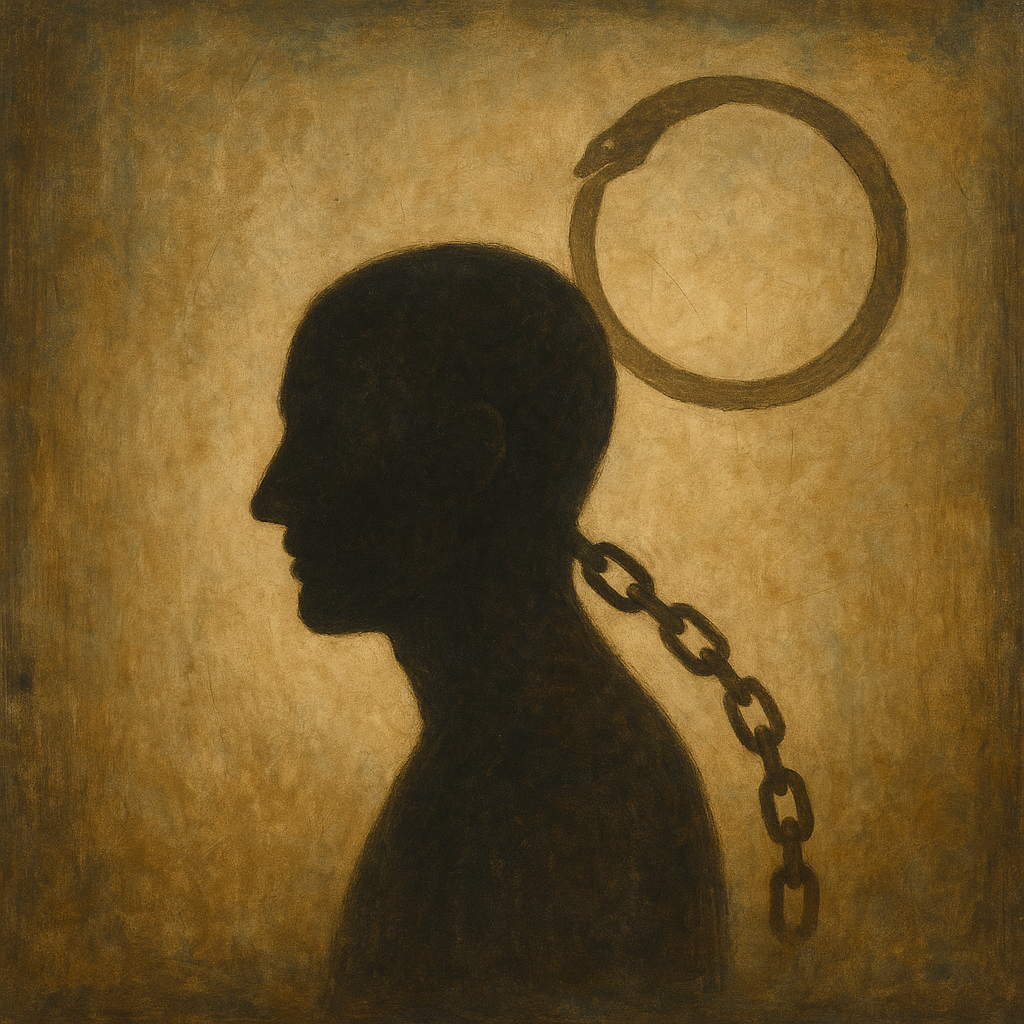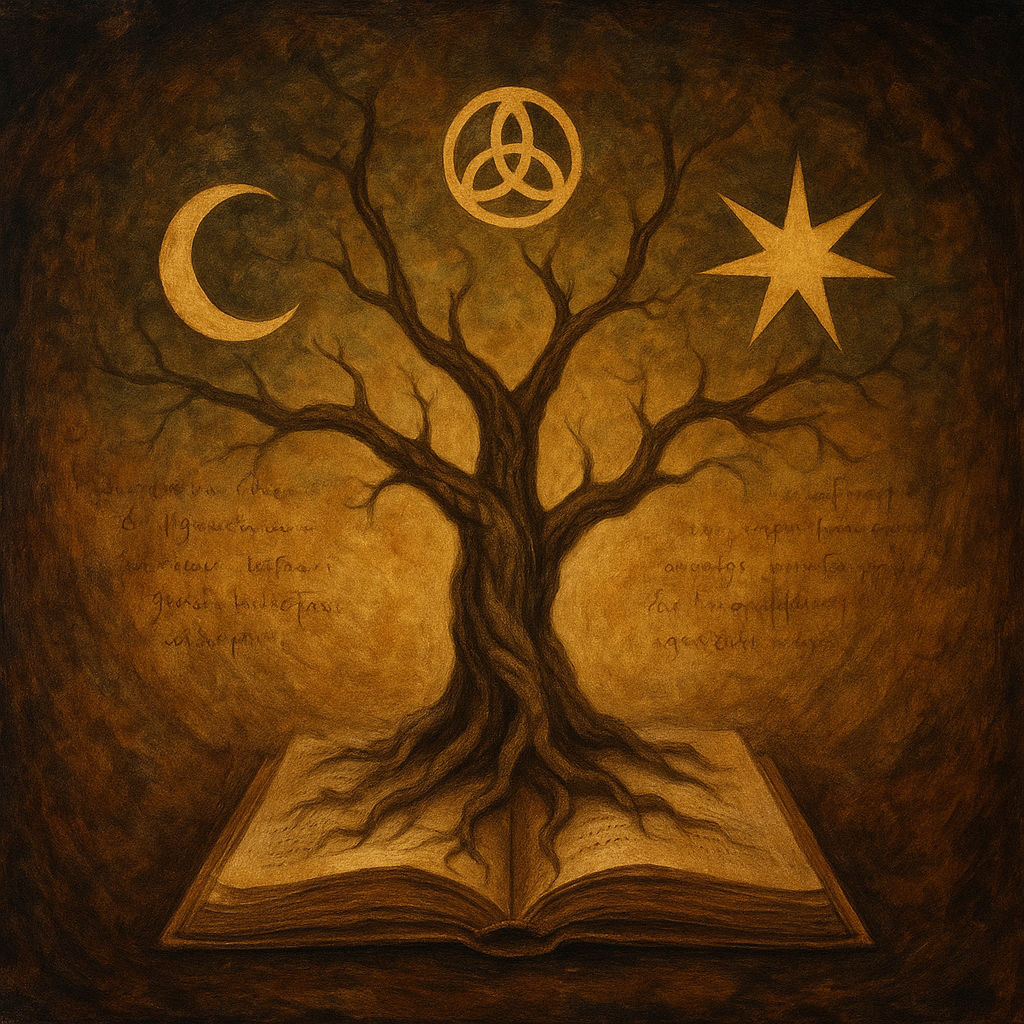Science is to know knowledge, knowledge is to know yourself. If you do not know yourself, how much reading is this? - Yunus Emre (1*)
The quest to know ourselves begins first and foremost with the necessity of survival.
Think of the perfect, cyclical functioning of our body. Eating, drinking, sleeping...
We don't even think about it, our body does it automatically. It lets us know when we are hungry, when we are thirsty. Like the orbit of a planet, it is in constant repetition and harmony.
The sun rises in the morning, sets at night; the seasons go round and round. Obviously, human beings go round and round in a similar way.
What about our non-biological cycles that we are not aware of? Invisible patterns that repeat in our minds every day, just as the sun rises and sets... Could it be that it is these inner cycles that really govern our lives?
When something negative happens to us (a trauma), it sometimes wounds us so much that whenever we approach a similar situation, we feel stress as if the bad situation will happen again. Could it be that we are unwittingly creating repetitive cycles for ourselves?
In the psychology literature, this is called "traumatic repetition". This is when we unwittingly recreate the same scenarios in our lives over and over again. As Bessel van der Kolk points out, the body remembers the trauma and can drag us into the same scenario through unconscious repetition. (2*)
So, is it only trauma that makes us repeat ourselves? Think of the sharp judgments we make about others: "That person talks too much," "the other one is too quiet," we find someone sneaky...
These judgments come from seeing their repetitive behavior.
What about us? If we could look at ourselves from the outside, what are we repeating? Could it be that the sentences we say to ourselves from the inside have unwittingly turned into cycles?
Do we always say positive things to ourselves when we succeed? Do we beat ourselves up when we fail?
In this article, we will try to dig deeper into the words and understand whether we are turning our lives into heaven or hell by being aware of our inner cycles or not.
The Philosophical and Scientific Perspective
Philosophical Perspective
Nietzsche: From Eternal Return to Liberation
Nietzsche's idea of the "eternal return" is in fact one of the harshest confrontations of human life: (3*)
"If you knew that life would be repeated endlessly, in the same way, down to the smallest detail, would you still be willing to live the same way?"
The power of this question lies in the way it puts before us the inevitable repetitions of life. The food we eat, the mistakes we commit, our joys, our disappointments... they all come back in cycles. If we think that we are condemned to these cycles, life seems to us like a chain, a shackle.
But Nietzsche's message is really about breaking the chain: If we can embrace these repetitions willingly, even lovingly, then the burden of life becomes freedom. We cannot escape the cycles, but we can choose how we experience them.
Eastern Philosophies: Samsara and Mindfulness
In Buddha's teachings, cyclic repetition, samsara, is seen as the source of suffering in life. Birth, death, rebirth; desires, attachments and disappointments... Unwittingly, man spins in this endless wheel. (4*)
But the solution offered by eastern philosophies is not to reject the cycle, but to recognize it. Mindfulness, or conscious awareness, is the key that unlocks the door to samsara. When we notice the sentences that automatically spin in our own minds, the repetitive behavior patterns, the emotions that are constantly triggered, we can step out of the cycle.
In short: Cycle awareness is the beginning of freedom.
Heidegger: Language Constitutes the World
One of Heidegger's famous statements is this:
"Language is the house of being."
In other words, the way we experience the world is shaped by the frames that language offers us. (5*)
If this is true, then the words we repeat may be constructing not only our thoughts, but our entire existence.
"I can't do it" says the person who unwittingly sets his own limits.
And who wants to rebuild their path says: "That's the way it always is."
Linguistic loops are like invisible chains.
As our words are repeated over and over in our minds, they spill out and determine the shape of our lives.
So recognizing and transforming our language is actually the first step to transforming our destiny.
Scientific Perspective
The Neurological Power of Words
Psychological and subconscious research reveals that language is not just a means of communication. Words are powerful patterns that directly affect the functioning of our mind and body.
Positive words such as "I am successful, I am hopeful, I am strong" activate the reward center of the brain; dopamine secretion increases and we feel powerful.
Negative words such as "I am inadequate, I am afraid, I am a failure" activate the amygdala, cortisol rises, and stress envelops our whole body. (6*)
In this context, it seems useful to review the phrases we constantly repeat within ourselves and towards our environment and to reorganize our cycles.
The Language Shaping Thought
The Sapir-Whorf hypothesis reminds us of the following:
Our thoughts are shaped by the language we use.
(7*)
In one culture, time is described as "a passing river", while in another culture it is described as "a circular circle".
The same reality is experienced differently in different languages. This changes the way their brain works and even their perspective on life.
While language itself has such a powerful effect, the choice of words and sentences in language also affects our neural connections and our lives, whether we realize it or not.
The Big Impact of Small Words
Even a single word we use can make a big difference in our subconscious mind.When we say
"I am trying", the door is still open to the possibility of failure.
"I am doing", the action becomes certain. (8*)
These small frame changes also determine the direction of our behavior.
Clues of Everyday Language
James Pennebaker's work suggests that the words in people's writing reflect their personality, mood, and even their healing process. (9*)
Excessive use of the word "I" is associated with depressed moods.
Increased use of social pronouns (we, they) indicates a sense of belonging.
The same goes for the framing effect:
"90% success rate" sounds hopeful, while "10% failure rate" triggers anxiety. Even if they both say the same thing... (10*)
Neuroscience and Language in the Brain
Richard Davidson and several other researchers show that meditation and positive self-talk change the physical connections of the brain. In other words, the words we choose create a real transformation through brain plasticity.
Hypnosis and suggestion research agrees.
Sentences such as "You notice that you are breathing more easily now" invite the person into their own experience without entering the imperative mode. Thus, it leaves a more lasting effect on the subconscious mind. (11*)
From Cycles to Freedom
The negative sentences we repeat over and over again open deep neural pathways in our brain. Over time, these pathways become automatic and trap us in the same loops.
But the positive words we consciously choose can restructure these pathways.
Language transforms not only our thinking, but also the hardware of our brain.
Thus, through words, we can open up a new space of freedom for ourselves.
Real Problems and Solutions
Problems
I think it is useful to realize this first: We are what we do over and over again, even if it's a bit metaphorical.
The problem is that if we don't realize the power of words, we create cycles within ourselves and then call it "fate". (12*)
According to Carl Jung, the archetypes of the collective unconscious carry similar cycles; the chain cannot be broken unless the individual confronts these repetitions within himself. (13*)
If the sentences we form internally in ourselves are:
"I will always fail."
"No one understands me."
Once these sentences are formed, they are more likely to become cycles. As our mind believes it, our behavior repeats in the same direction. But if we realize... Then we can break these cycles.
Solution Suggestions
Breaking Cycles: Stoic Reframing
Epictetus' teachings shed light not only on what we "cannot control" but also on our cyclical habits.
Always reacting the same way in the same situation, getting angry, writhing with anxiety, are in fact chains that we create with our own hands.
The Stoic view suggests reframing these cycles. (14*)
We may not be able to change what is happening, but we can break the same vicious cycle by changing our reactions each time, if necessary, based on whether they are cyclical and whether they make us feel good or bad.
Mindfulness: Noticing the Loop
Mindfulness is often summarized as "staying in the moment". But the point is this:
The moment we notice recurring thoughts, their power to rule us weakens.
For example, if your mind is spinning the phrase "I am inadequate" with every failure, catching it in that moment is like untying the first link in a chain.
First we recognize the situation, then we distance ourselves from it, and in this way we transform it.
The Power of Language: Rewriting the Inner Script
Words are the most powerful tools that secretly feed the loops of our mind.
Negative phrases such as "I always lose" are etched into the subconscious mind as they are repeated.
But a small change can make a big difference:
If we say to ourselves that we have a "problem", it can make us feel that the problem will remain a problem, whereas if we say that we have a "challenge", it can make us feel that it is a challenge we can solve.
"I'm trying", we give ourselves the presupposition of failure, but if we say "I'm doing it", it can give us self-confidence.
Sentences like "I'm a failure" make failure seem part of our character, while sentences like "I'm gaining experience." can remind us that even if we fail, we learn from that failure and become stronger.
Let's not forget that language shapes thought and thought shapes our destiny.
Little Practice: Inner Voice Journal
A simple but effective way to recognize cycles:
Record or write your inner voice for 3 days.
Mark the 5-10 most repetitive phrases.
Then translate each one into more constructive language.
For example:
"I can improve the way I communicate." Instead of saying "No one understands me", we can take a step to improve ourselves instead of blaming the problem on the outside world.
This small exercise is a powerful step to start untangling the threads of invisible loops.
Conclusion and Message to the Reader
I think the most basic point we have arrived at is that human beings, like the universe, live in cycles.
The cycles we are not aware of keep us in chains, and the ones we recognize liberate us. The key to this liberation lies in our language.
Every word we say to ourselves creates a new link in our minds. Will those links turn into a chain, or will they carry us to the sky, the choice is entirely ours.
Our language, our inner loops...
As always, this question is for you, my readers:
What about your sentences and thoughts that you have turned into loops without realizing it? Do you think you can make your life beautiful by transforming them?
The voices from the history of language shape our lives as much as our daily inner voice. In the next article, we will dive into the origins of some of the key words that shape our destiny: Are you ready to trace your own words on this journey from language to thought?
Till then, stay in love...
Source
- Yunus Emre - Divan (13. century)
- Bessel van der Kolk - The Body Keeps the Score (2014)
- Friedrich Nietzsche - Böyle Buyurdu Zarathustra (1883-85)
- Walpola Rahula - Walpola Rahula What the Buddha Taught (1959)
- Martin Heidegger - Unterwegs zur Sprache (1959)
- Barbara Fredrickson - Positivity (2009)
- Edward Sapir & Benjamin Lee Whorf - Language, Thought, and Reality (1956)
- Richard Bandler & John Grinder - Frogs into Princes (1979)
- James W. Pennebaker - The Secret Life of Pronouns (2011)
- Amos Tversky & Daniel Kahneman - Choices, Values, and Frames (1981)
- Milton Erickson - Hypnotic Realities (1976)
- Robert Cialdini - Influence: The Psychology of Persuasion (1984)
- Carl Jung - The Archetypes and the Collective Unconscious (1959)
- Epiktetos - Enchiridion (c. 135 CE)
- Epiktetos - Enchiridion (M.Around 135 AD)





